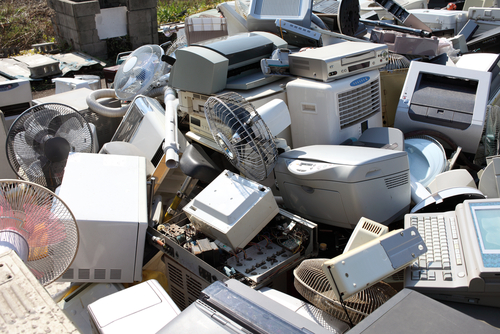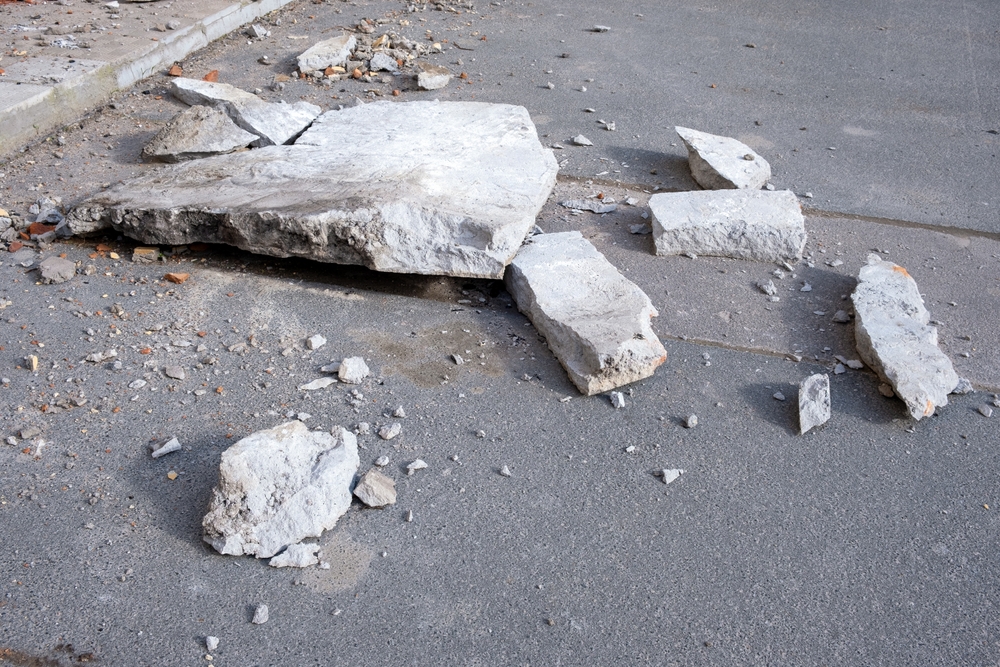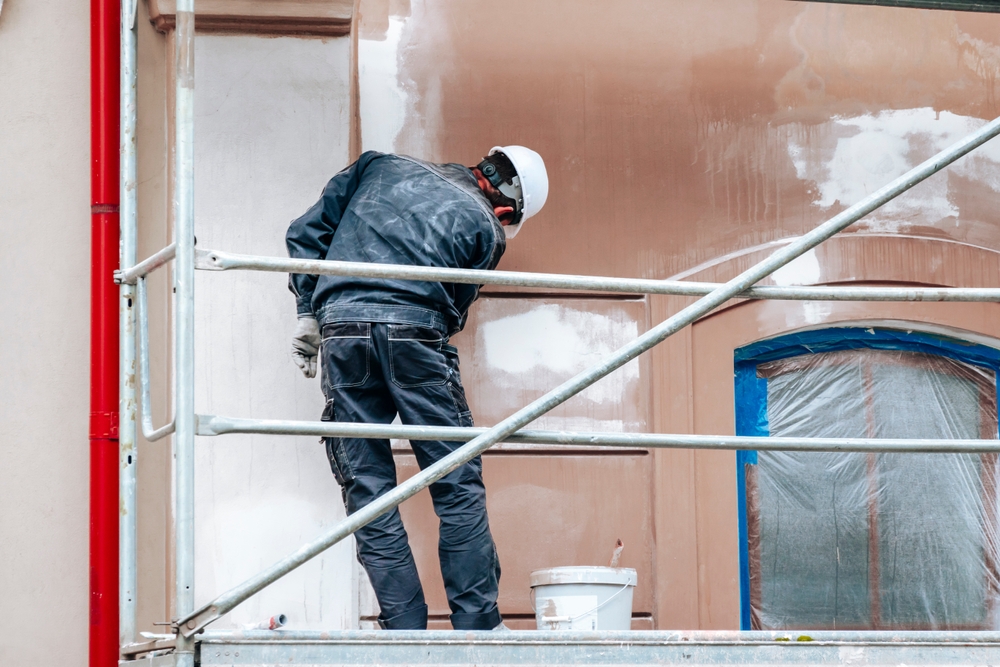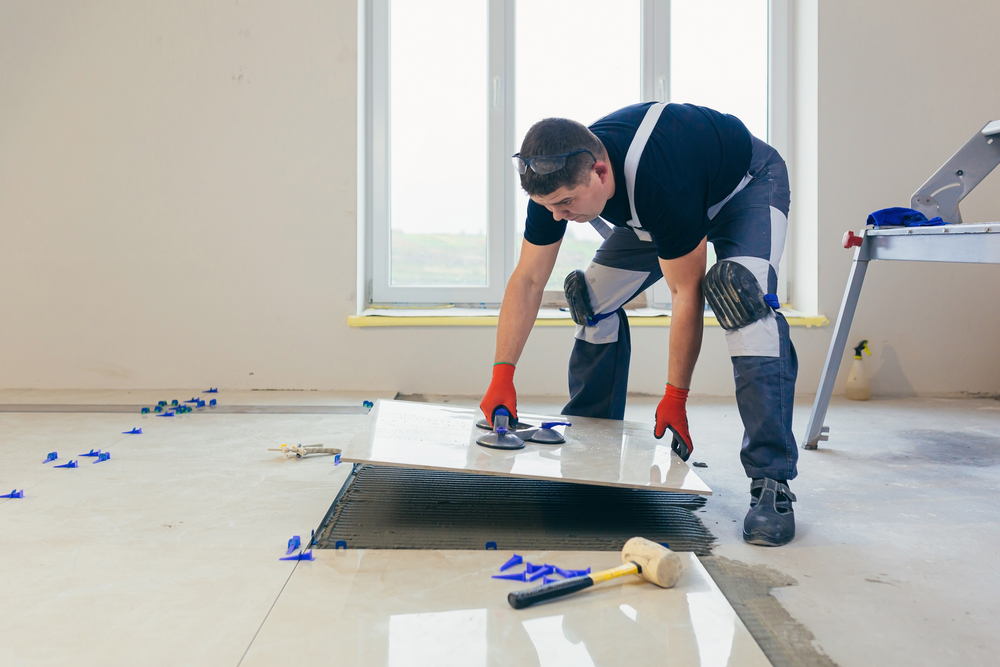May 9, 2024 - Benjamin Ehinger
How to Properly Dispose of a Microwave: A Guide to Responsible Recycling
CALL NOW 844-762-8449
When it’s time to upgrade your kitchen appliances or if your microwave has reached the end of its life, knowing how to dispose of it properly is key. Microwaves contain components that can be harmful to the environment if not handled correctly. Rather than tossing an old microwave into the trash, consider the options you have for disposal. Proper disposal ensures that hazardous materials are managed safely and valuable resources are recovered for reuse.
Electronics recycling programs are a viable option; they handle e-waste in an eco-friendly way, ensuring that any parts that can be salvaged or recycled are processed properly. If your microwave is still in working condition, another route to consider is donation. Many organizations accept used appliances to support those in need. Alternatively, if your microwave is beyond repair, learn about your local waste facility’s guidelines for appliance disposal to ensure compliance with regulations. In some cases, appliance stores themselves offer take-back programs for old microwaves, making disposal convenient for consumers while contributing to environmental conservation.
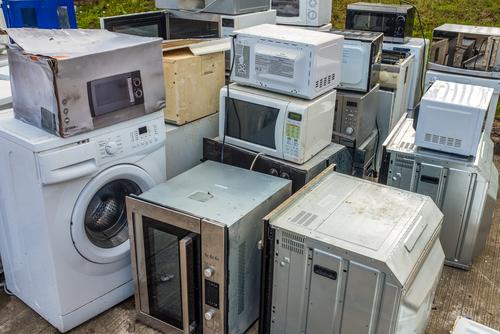 When recycling your microwave, you need to identify a local e-waste recycling center and understand the specific regulations that apply. Doing so ensures the process is eco-friendly and compliant with law.
When recycling your microwave, you need to identify a local e-waste recycling center and understand the specific regulations that apply. Doing so ensures the process is eco-friendly and compliant with law.
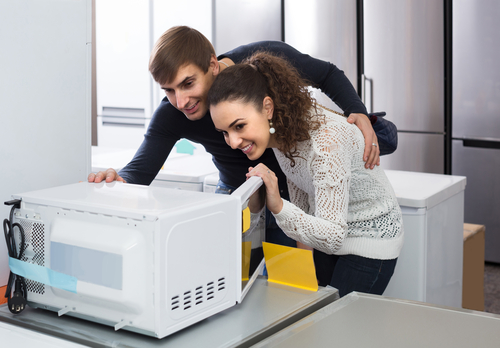 When you’re ready to upgrade your kitchen appliances, consider selling your old microwave or trading it in. This approach not only offers you the chance to make some money back but also contributes to a more sustainable cycle of appliance use.
When you’re ready to upgrade your kitchen appliances, consider selling your old microwave or trading it in. This approach not only offers you the chance to make some money back but also contributes to a more sustainable cycle of appliance use.
Key Takeaways
- Proper disposal of microwaves prevents environmental harm.
- Donation or recycling are preferable to throwing microwaves in the trash.
- Retailer take-back programs offer an easy microwave disposal option.
Understanding Microwave Disposal
When it’s time to say goodbye to your microwave, whether it’s working or not, proper disposal is crucial for environmental and safety reasons. Understanding the process can help you make informed decisions.Assessing the Microwave’s Condition
Working Microwave: If your microwave is still functional, consider donation or resale. Non-profit organizations or thrift stores may accept it, providing an opportunity for reuse. Alternatively, selling or giving away your microwave online can extend its life and keep it out of the waste stream. Broken Microwave: For microwaves that no longer work, recycling is the best choice. Electronic waste recycling centers are equipped to handle hazardous materials safely, recovering valuable components for reuse. Remember, even if it’s broken, your microwave still comprises recyclable metals and plastics.Hazards of Improper Disposal
Disposing of a microwave improperly by, for example, placing it in regular trash, can pose significant risks. Microwaves contain hazardous materials like lead and mercury, which can contaminate landfills and be harmful to the environment and public health. Safety Considerations: Always handle your microwave with care. If you’re transporting it to a recycling center or donation facility, secure it in your vehicle to prevent injuries or accidents. When in doubt, consult with professionals who specialize in handling electronic waste.Preparing the Microwave for Disposal
Before disposing of your microwave, it’s essential to prepare it properly to ensure safety and adhere to recycling regulations. This involves cleaning the appliance thoroughly and disassembling any non-electronic parts that are removable.Cleaning the Microwave
First, unplug your microwave and let it cool down if it was in use recently. Wipe the interior with a damp cloth to remove any food residue or spills. If tough spots persist, use a mixture of water and mild detergent to help loosen them. For the exterior, a gentle cleaning spray and cloth should do the job. Ensure the microwave is completely dry before proceeding to the next step.Disassembling Non-Electronic Parts
Once the microwave is clean, you can start to remove any non-electronic parts that might be present. This typically includes:- The glass turntable, which should be lifted straight out.
- Any supporting rings or wheels under the turntable.
- Removable shelves or racks.
Recycling the Microwave
 When recycling your microwave, you need to identify a local e-waste recycling center and understand the specific regulations that apply. Doing so ensures the process is eco-friendly and compliant with law.
When recycling your microwave, you need to identify a local e-waste recycling center and understand the specific regulations that apply. Doing so ensures the process is eco-friendly and compliant with law.
Locating a Recycling Center
To locate a recycling center specializing in electronics, start by searching online for “electronic waste recycling near me”. E-waste recycling centers are equipped to handle small appliances like microwaves and ensure their components are either repurposed or safely discarded. For convenience, here’s a structured format to aid your search:- Online Search: Use search engines or websites such as Earth911 to find nearby facilities.
- Local Government: Contact your local waste management authority for a list of certified e-waste recyclers.
- Retailers and Manufacturers: Some brands offer take-back programs, allowing you to return your old microwave for recycling.
Understanding Recycling Regulations
Local regulations can vary, so it’s important to familiarize yourself with them to recycle your microwave properly. Here are some steps to help you understand these regulations:- Contact Local Authorities: Reach out to your city or county’s waste management department to inquire about rules and guidelines.
- Research Online: Look for information on the official websites of environmental agencies in your area.
- Ask the Recycling Center: When you locate a center, ask about their processes and how they adhere to local regulations.
Donating the Microwave
When you donate your working microwave, you provide a valuable resource to those in need while practicing social responsibility. Follow these steps to ensure your microwave is ready for donation and meets the necessary criteria.Finding Charitable Organizations
Locate charities that accept donated appliances. Organizations such as Habitat for Humanity ReStore often welcome working appliances. Contact your local shelter or thrift stores like the Salvation Army to inquire if they could benefit from your microwave donation.Preparing Microwave for Donation
Before donating, ensure your microwave is clean and in good working condition. Follow these steps:- Unplug the appliance from the power source.
- Remove detachable parts, such as the glass tray and ring.
- Clean all surfaces with a mixture of mild dish soap and water, or use equal parts vinegar and water for a natural alternative.
- Wipe down and dry all parts before reassembling.
Donation Acceptance Criteria
Your microwave must meet certain criteria to be accepted by charities:- Working condition: The microwave should be fully operational.
- Clean: The appliance must be free from food residue and odors.
- Complete: Include all components like the turntable and instruction manual if available.
- Safe: Microwaves should comply with safety standards and not be subject to any recalls.
Selling or Trading In the Microwave
 When you’re ready to upgrade your kitchen appliances, consider selling your old microwave or trading it in. This approach not only offers you the chance to make some money back but also contributes to a more sustainable cycle of appliance use.
When you’re ready to upgrade your kitchen appliances, consider selling your old microwave or trading it in. This approach not only offers you the chance to make some money back but also contributes to a more sustainable cycle of appliance use.
Listing on Online Marketplaces
You have various online marketplaces at your disposal for listing your used microwave. Platforms like Craigslist, eBay, or Facebook Marketplace are popular options that allow you to reach a broad audience. Begin by taking clear, high-resolution photos of your microwave from multiple angles. Include specifics about its condition, age, brand, and model in the product description. Set a reasonable price based on the model and its current condition. When listing on sites like Craigslist, ensure you follow safety advice for exchanging goods and avoid sharing personal information unnecessarily.Trade-In Programs at Retailers
Some retailers offer trade-in incentives to encourage you to bring in your old appliances when purchasing a new one. These trade-in programs can provide you with discounts on your new purchase. Check the retailer’s website or contact them directly for information on their specific trade-in terms, such as required condition and age of the microwave, or any potential credit you might receive. Be aware that not all retailers offer trade-in programs, and those that do may have limited time offers or specific terms and conditions, so it’s essential to inquire and understand these before proceeding.Alternative Disposal Options
When you’re ready to part ways with your old microwave, certain services can help you dispose of it responsibly. Here’s how you can use bulk waste pickup and junk removal services to ensure your microwave is handled properly.Bulk Waste Pickup Services
Your local waste management company likely offers bulk waste pickup services for items too large for regular trash bins. Generally, you need to schedule a pickup in advance and may incur a nominal fee. To use this service, make sure your microwave qualifies as a bulky item for collection, and follow the municipality’s guidelines for setting it out on the scheduled day.Junk Removal Services
If scheduling a pickup doesn’t suit you, consider hiring a junk removal service. These companies specialize in hauling away items, particularly those not accepted in normal waste services. They may offer a more flexible schedule and can handle a variety of items, including household appliances. When using these services, inquire if they have environmentally-friendly disposal policies for electronic appliances taken to a garbage center for recycling or proper disposal.Corporate Take-Back Programs
When it comes to disposing of your old microwave, you have environmentally responsible options through corporate take-back programs. Both manufacturers and retailers offer these programs to facilitate the proper recycling of electronic appliances.Manufacturer Recycling Initiatives
Many microwave manufacturers have established recycling initiatives allowing you to return your used appliance for recycling. Through manufacturer take-back programs, you are often able to drop off old microwaves at designated locations or arrange for them to be picked up. These programs ensure that your microwave is dismantled responsibly and minimize environmental harm by properly disposing of hazardous components.Retailer Recycling Programs
Retailers such as Best Buy and Office Depot also participate in recycling electronics. They provide take-back and recycling programs for a wide range of electronic devices, including microwaves. You can take your old microwave to these retailers, which they either refurbish for resale or recycle. Such programs offer a convenient way for you to ensure your microwave is disposed of properly without much hassle.Community and Environmental Impact
Disposing of your microwave properly is pivotal in promoting a healthier environment and supporting your community’s sustainability. This process minimizes potential harm from hazardous materials found in electronic waste.Supporting Eco-Friendly Practices
When you choose to recycle your microwave, you actively contribute to eco-friendly practices. Recycling centers, often termed recycling facilities, play a crucial role in sorting and safely managing the components of your microwave. There, parts that can be reused or recycled prevent the need for new resources, aiding in the conservation efforts spearheaded by entities like GreenDirectory.Reducing Landfill Waste
Microwaves sent to landfills constitute a form of electronic waste that can be detrimental to the environment. By properly disposing of your microwave, either by taking it to an e-waste recycling center or participating in local disposal programs, you’re significantly reducing the volume of waste in landfills. This helps to alleviate the environmental strain from non-biodegradable waste and the toxic substances that could leach into the ground. Learn about safe disposal methods to ensure your actions do not add to the escalating concerns of landfill overflow.Frequently Asked Questions
When it comes to recycling your microwave, you have various options to consider. Ensure you’re informed about the methods and legality of disposing of a microwave in your area.Where can I find free microwave recycling services?
You can find free junk removal estimates for recycling your microwave, which may include free services depending on the contractor.What are the regulations for microwave disposal in my area?
Check your local government’s waste management policies as regulations vary by city and state for proper microwave disposal.Are major retailers like Home Depot and Best Buy offering microwave recycling?
Some major retailers offer recycling programs for electronics, including microwaves—check with stores in your area.Is it legal to throw a microwave in a dumpster or into general waste?
Placing microwaves in local dumpster rentals or general waste may be against local regulations. Verify the rules to avoid legal issues or fines.How should I handle the disposal of a broken microwave?
If your microwave is beyond repair, consider taking it to an e-waste recycling center to handle its disposal safely.What environmentally responsible options are available for microwave disposal?
Environmentally responsible options include donating to charity if the microwave still works or recycling it properly.Is it okay to toss out a microwave in a roll off dumpster rental?
Check with the roll off dumpster rental company for their policy on electronic appliances, as some may not permit microwaves in their dumpsters.RECENT BLOGS
Our Reviews
Glenda Lanier Prowell
1721758635
I have ordered an 11 yard dumpster to be delivered to my house.Lonier was extremely helpful and answered all my questions. The rate was very reasonable.
Cedric Smikle
1721660395
Amber was extremely professional and courteous. She answered all of my questions and even some that I didn’t know I needed to ask.
Cait Kaider
1721243051
I highly recommend Waste Removal USA for their responsiveness and how the staff work hard to provide exceptional customer service. They have done well by us and our clients. Thank you!
Easom Family
1721223306
Louiner Pierre-Louis Is awesome! Did a great job. Will definitely be using this same company for all my dumpster needs because of his awesome customer service! Thank you!!!
tabitha Vazquez
1720539988
Wonderful and fast customer service!
LATEST BLOGS

